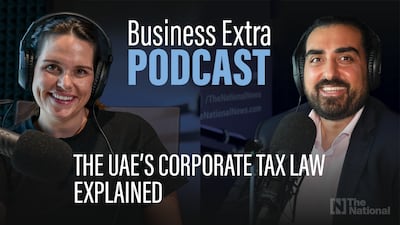Regular readers of this column will know that UAE corporate tax legislation is best thought of as a multidimensional jigsaw puzzle. This is because the pieces are coming from different regulatory authorities: the Cabinet of Ministers, the Ministry of Finance and the Federal Tax Authority.
Clarifications are likely to come from the FTA, which has the responsibility of enforcing the regime and court decisions that further interpret the law within the broader UAE legal framework. The legislative pieces we have are more than enough to keep us working late to ensure our understanding and implementation are in line.
Today, I want to demonstrate a working example of what this means in practice. In doing so, I will take transfer pricing as the supporting tool.
If there is just one element of this area that should cause you to stop and consider where you as a business owner or partial shareholder will be affected, it is your status within the operational business.
Trade licences unfortunately convince many owners that they are employees. This is because a great many of them title the nominated person in charge as Manager. It is completely understandable that a person reading this would assume that makes them an employee. No, it does not. It is just a formal aspect of the documentation.
In the services sector, salaries are typically one of the largest cost lines and have a material impact on your bottom line. Only the contracted charge for salary and associated costs in total will be deductible against taxable profits. All other monies drawn by a shareholder are dividends. These are not tax deductible. If you are unsure, get support.
Let us put some jigsaw pieces on the table. There are three we are primarily concerned with. Additionally, there are two others, which while they do not belong in the UAE picture, have a real influence on how it works.
There is the UAE corporate tax law of 2022, Cabinet Decision 44 of 2020 and Ministerial Decision 97 of 2023. Add the OECD transfer pricing guidelines, a tome worthy in length and complexity of Tolstoy and the UAE transfer pricing guide of 2023.
Keep in mind that the latter has a caveat that limits its usefulness by calling the document indicative.
In a purchase or sale of a good or service, there is a buyer and a seller. Sometimes the same or elements of the same parties might be involved on both sides. This then becomes a related party transaction.
If you are both the buyer and the seller, you’re in a position to impact how the deal is constructed. Tax authorities take a great interest in these where a person might use this to his advantage, ensuring that tax due is minimised between the buying and selling entity.
Ensuring equity for the taxman, the sale must be done at arm’s length. This means that the nature of the transaction is the same as if there was no relation between the buyer and the seller.
Keep in mind that an employee on a labour contract is selling their services to their employer. It is not a one-off purchase, but continuing for the period in which both are content to operate in this manner. Therefore, if the seller of services is also an owner of the business, then everything must be done at arm’s length. There are rules.

The payment made must reflect what the general marketplace would normally pay for similar services. There are reasonable bands of value and various scales of measurement are calculable. What we desperately need to know, months into the second year of corporate tax, is guidance as to what scales might be acceptable.
In the UAE we have been, until recently, more concerned with cross-border transactions. No more. Domestic considerations have now taken precedence, especially considering the expertise of local authorities in determining how your business should handle such transactions.
A relationship can be assumed to be based on family ties extending up to four degrees. It's not a straightforward one-to-one measure, but rather a shared ownership involving two or more people. In fact, ownership isn't a mandatory criterion; individuals may be appointed to have control even if they do not hold any ownership interest.
With reference to the above, you might be forgiven for thinking this relates purely to standard juridical entities, such as trading companies in goods or services. However, it also includes unincorporated partnerships, trusts and foundations.
In essence, our pieces tell us that adherence to the arm's length principle is imperative when engaging in transactions with related parties. It is essential to maintain proper documentation to substantiate compliance with this principle.
David Daly is a partner at the Gulf Tax Accounting Group in the UAE




